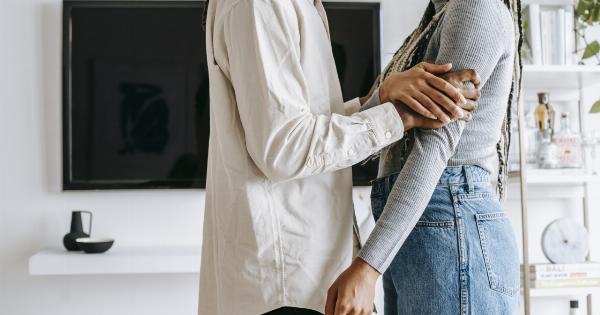Male anxieties are often overlooked or dismissed in discussions about mental health and well-being. Society has ingrained certain expectations and stereotypes about masculinity, making it difficult for men to openly express their fears and concerns.
In this article, we shed light on four common anxieties that men grapple with but often don’t want to acknowledge or discuss.
The Fear of Vulnerability
Men are often raised with the belief that they should be strong, unemotional, and self-reliant. As a result, many men develop a fear of vulnerability.
They feel pressured to always present a stoic facade and appear in control, even when they are struggling internally. The fear of being judged or seen as weak is a significant anxiety that men may grapple with silently rather than seeking support or expressing their emotions openly.
Concerns About Sexual Performance
Society often places immense importance on men’s sexual performance and virility, leading to anxiety and self-doubt. Men may worry about their ability to satisfy their partner, maintain an erection, or experience performance anxiety.
These concerns can undermine their self-confidence and contribute to a broader sense of anxiety.
The Pressure to Provide and Succeed
Traditional gender roles often put an enormous burden on men to be providers and achieve financial success. Men can feel anxious and overwhelmed by the pressure to earn enough to support their families and fulfill societal expectations.
The fear of failure and not meeting these expectations can lead to significant anxiety, leaving many men feeling trapped and unable to address these concerns openly.
Body Image Insecurities
While body image insecurities are commonly associated with women, men also experience anxieties related to their physical appearance.
Society’s emphasis on a muscular or athletic physique can create unrealistic standards for men, leading to dissatisfaction with their bodies. Many men may struggle with their self-esteem and develop anxiety about their appearance, resorting to extreme measures to fit into societal expectations.
The Importance of Addressing Male Anxieties
It is crucial to recognize and address male anxieties to create a more inclusive and understanding society. Men need safe spaces and support systems that allow them to express their fears and concerns without judgment.
Breaking down social and cultural barriers can encourage men to seek help and actively work towards improving their mental well-being.
Overcoming the Fear of Vulnerability
To overcome the fear of vulnerability, it is vital for men to understand that expressing emotions or seeking help does not make them weak.
Opening up to a trusted friend, family member, or therapist can facilitate emotional growth and help alleviate anxiety. Creating an environment of empathy and understanding is crucial for men to feel comfortable sharing their fears and concerns.
Addressing Sexual Performance Anxiety
Sexual performance anxiety can be addressed through open communication with partners. Discussing concerns, desires, and expectations can alleviate pressure and enhance intimacy.
Seeking professional help from a sex therapist or counselor can also provide valuable guidance and support in navigating sexual anxieties.
Challenging Societal Expectations
Challenging societal expectations of success and achievement is essential for men to combat anxiety related to providing and succeeding. Men should remember that their worth is not solely determined by their financial capabilities.
Seeking a more balanced and holistic definition of success can alleviate some of the undue pressure and anxiety associated with traditional masculinity.
Promoting Body Positivity for Men
Combatting body image insecurities requires a collective effort to promote body positivity for men.
Encouraging diverse representations of male bodies in media and challenging unrealistic standards can help men develop a healthier relationship with their physical appearance. Engaging in self-care practices, such as exercise, healthy eating, and mindfulness, can also boost self-esteem and reduce anxiety linked to body image.
The Importance of Support Networks
Men should actively seek and nurture support networks that provide non-judgmental spaces for discussion. Being part of a community or participating in support groups can help men realize that they are not alone in their anxieties.
Sharing experiences, seeking advice, and receiving validation can significantly contribute to men’s mental health and overall well-being.
The Path Forward
It is time to break the stigma surrounding male anxieties and create a society that allows men to express their fears and concerns openly.
By challenging societal expectations, nurturing empathy, and encouraging open dialogue, we can foster an environment where men’s mental health is prioritized. Through support and understanding, men can overcome their anxieties, leading to happier, healthier lives.
Conclusion
Male anxieties are complex and deeply rooted in societal expectations and stereotypes. Breaking down these barriers is crucial for men to address their fears and concerns openly and seek the support they need.
By challenging traditional notions of masculinity, promoting empathy, and normalizing discussions around male anxieties, we can create a more inclusive society that prioritizes the mental well-being of all individuals.






























